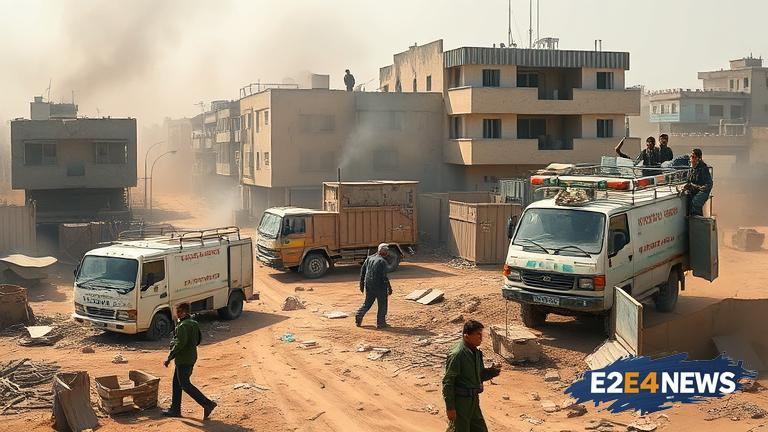The situation in Gaza has taken a devastating turn, with reports emerging that at least 85 Palestinians seeking aid have been killed in the region. This tragic incident has occurred as Israel widens its evacuation orders, further complicating the already dire humanitarian crisis. The Gaza Strip, a coastal region bordering Egypt and Israel, has been a focal point of conflict for decades, with the Israeli-Palestinian conflict being a central issue. The recent escalation of violence has led to a significant increase in civilian casualties, with many innocent lives lost. The international community has expressed deep concern over the situation, calling for an immediate cessation of hostilities and a return to peaceful negotiations. Despite these appeals, the conflict shows no signs of abating, with both sides dug in and refusing to back down. The humanitarian crisis in Gaza is multifaceted, with issues ranging from food and water shortages to inadequate medical care and sanitation. The widespread destruction of infrastructure has only served to exacerbate these problems, leaving many Palestinians without access to basic necessities. The psychological toll of the conflict on civilians, particularly children, should not be underestimated, with many suffering from trauma and anxiety. The role of the international community in resolving the conflict is crucial, with many calling for a more proactive approach to brokering peace. The United States, in particular, has been criticized for its perceived bias towards Israel, which some argue has emboldened the Israeli government to pursue more aggressive policies. Meanwhile, countries such as Turkey and Qatar have been at the forefront of efforts to provide humanitarian aid to Gaza, highlighting the complexities of the regional dynamics at play. As the situation continues to deteriorate, it is imperative that the international community comes together to find a solution, one that prioritizes the protection of civilian lives and the promotion of a lasting peace. The use of military force has proven to be a blunt instrument, often causing more problems than it solves, and it is time for a more nuanced approach to be adopted. Ultimately, the key to resolving the conflict lies in addressing the underlying issues, including the question of Palestinian statehood and the future of Jerusalem. Until these issues are addressed, the cycle of violence is likely to continue, with devastating consequences for civilians on both sides. The need for a comprehensive and inclusive peace process has never been more pressing, and it is the responsibility of the international community to ensure that this process is given the support and resources it needs to succeed.
